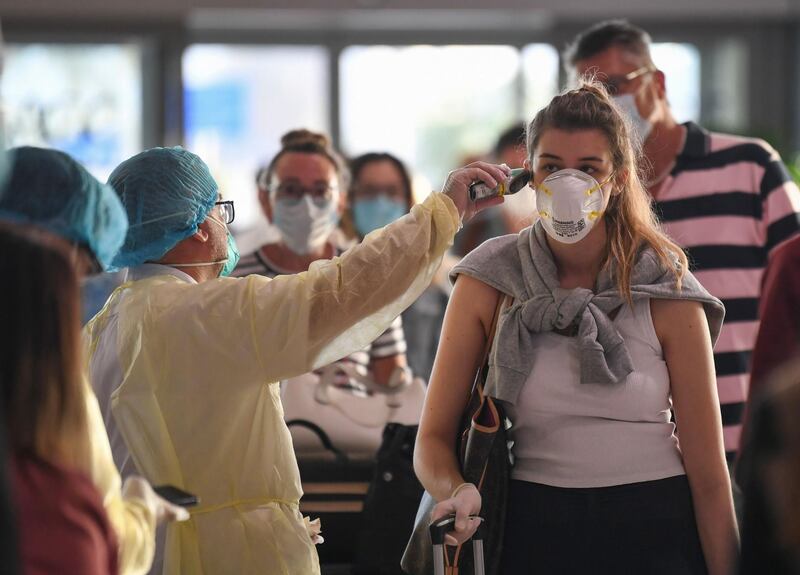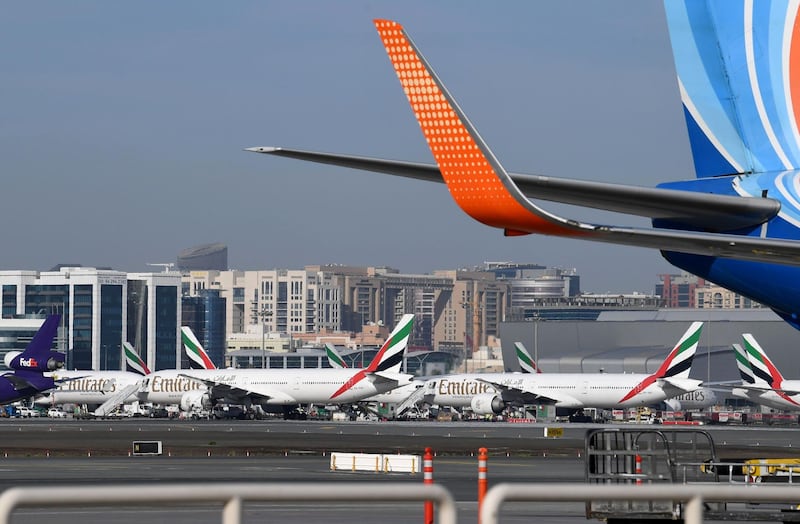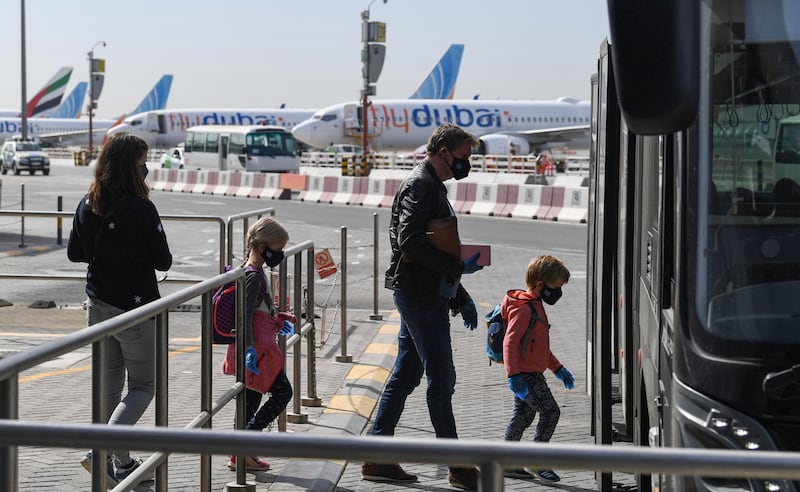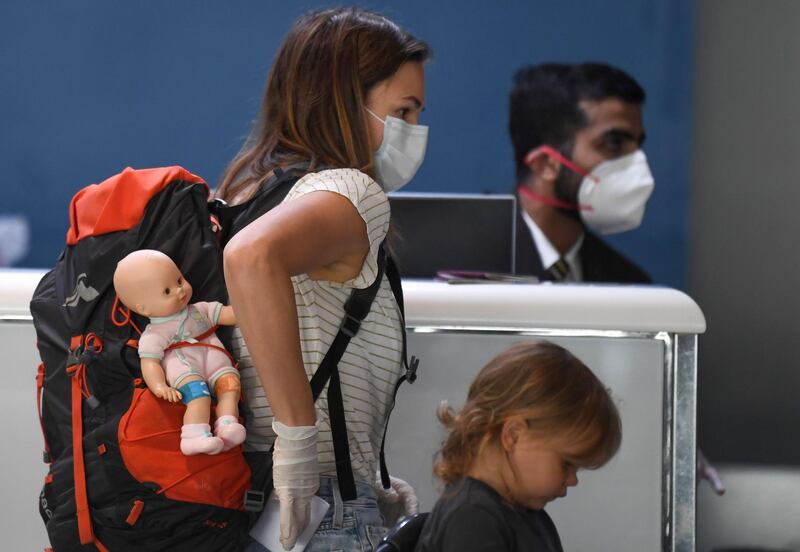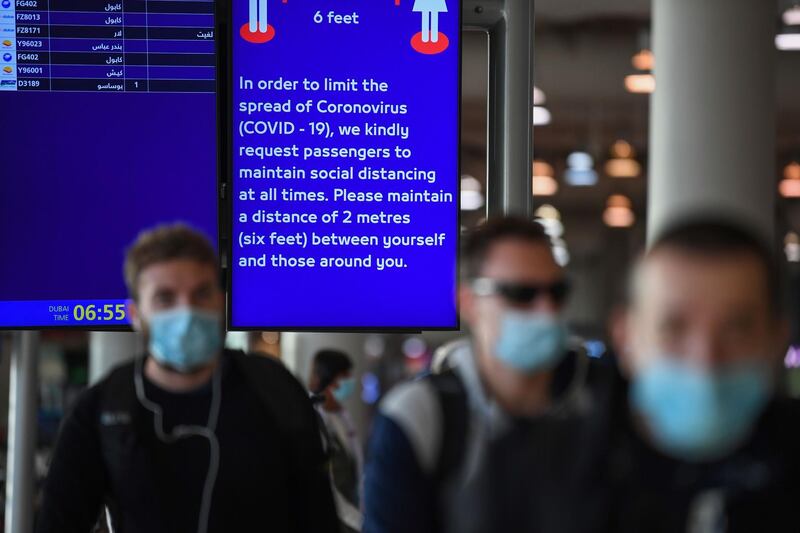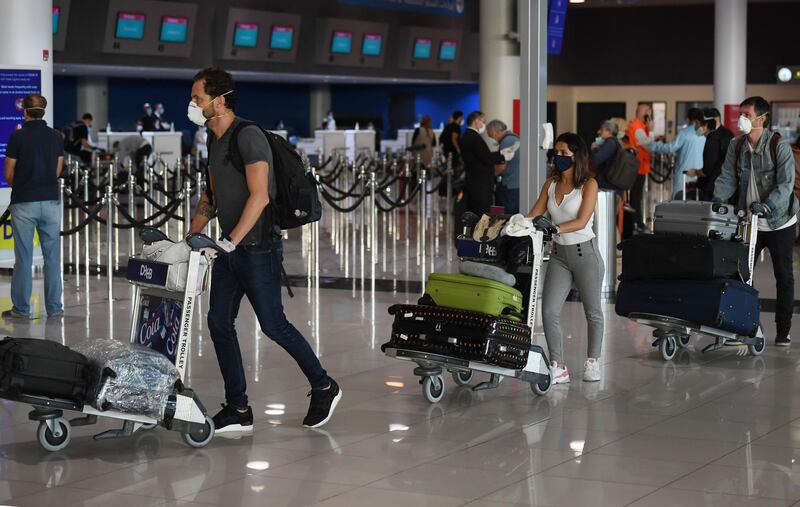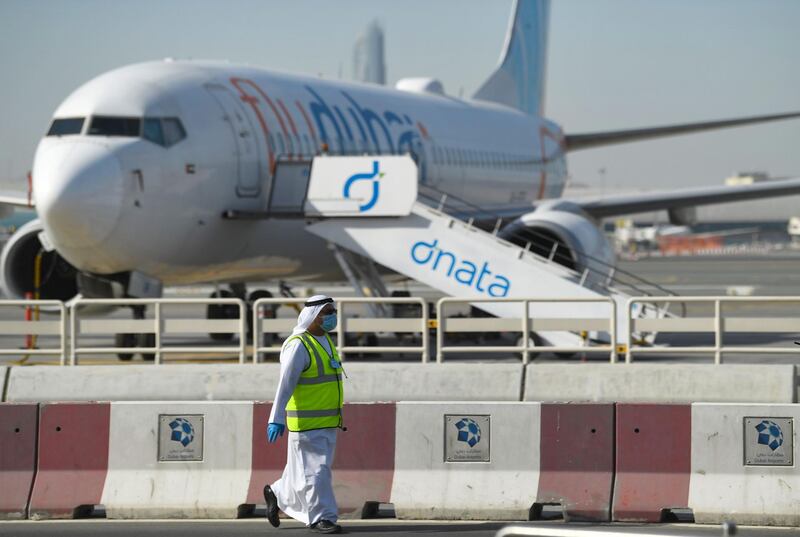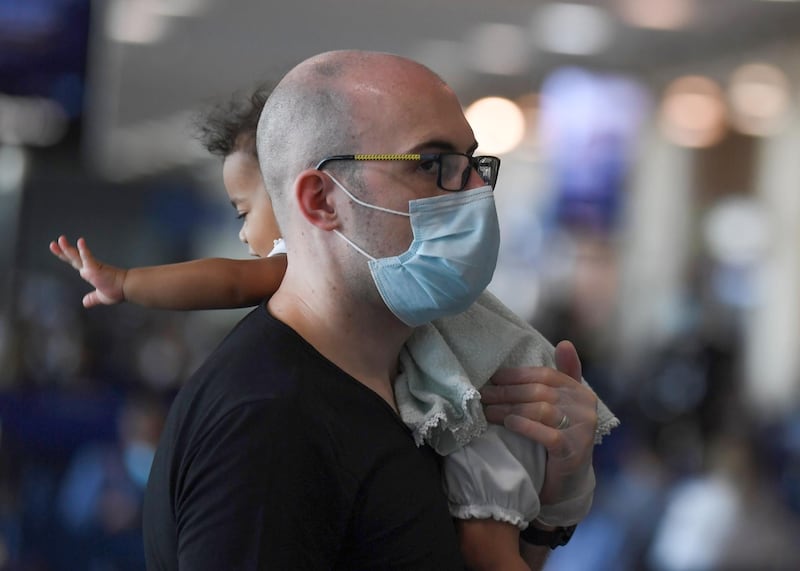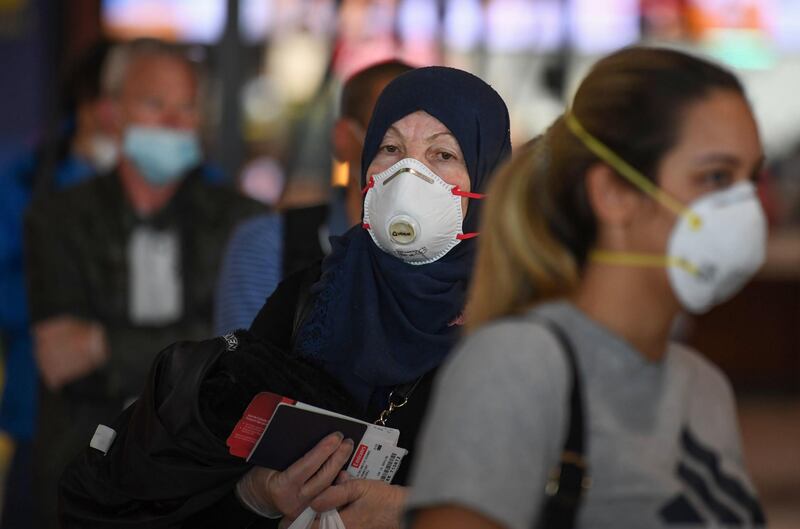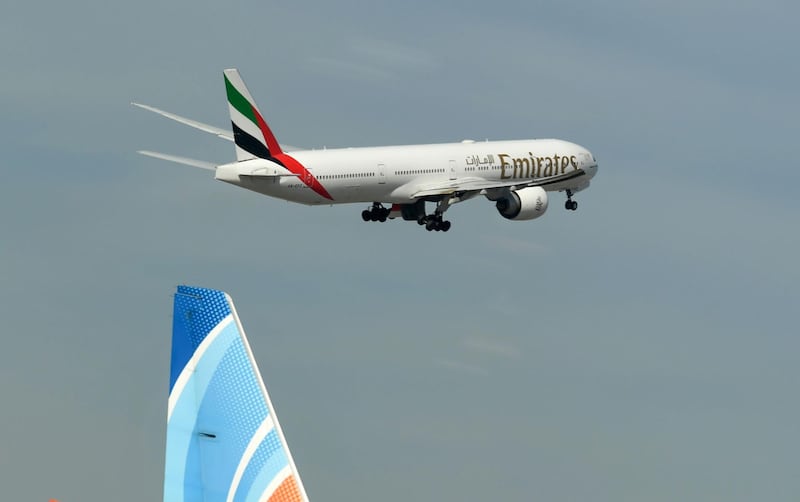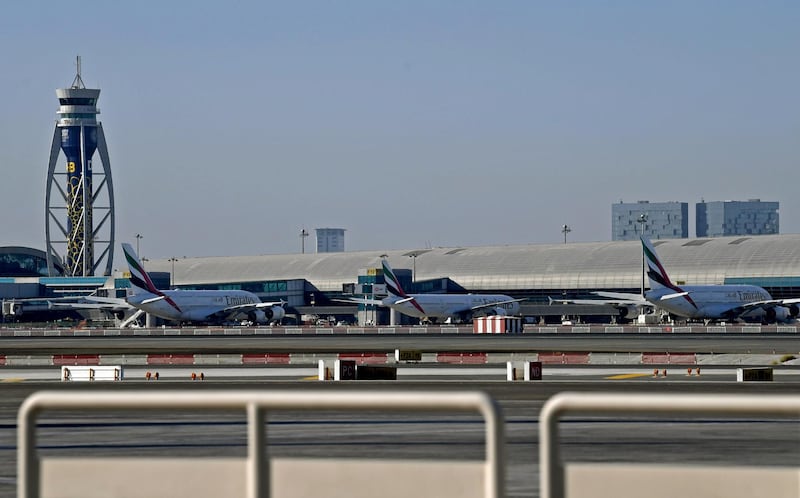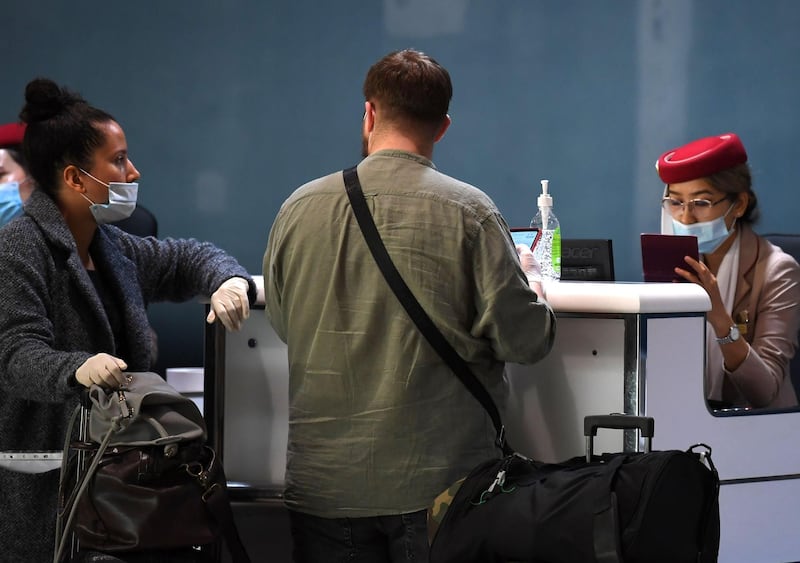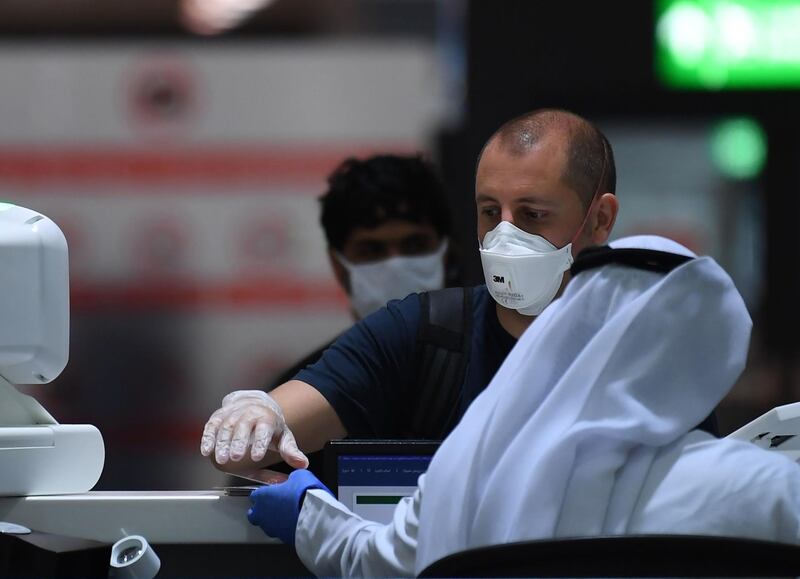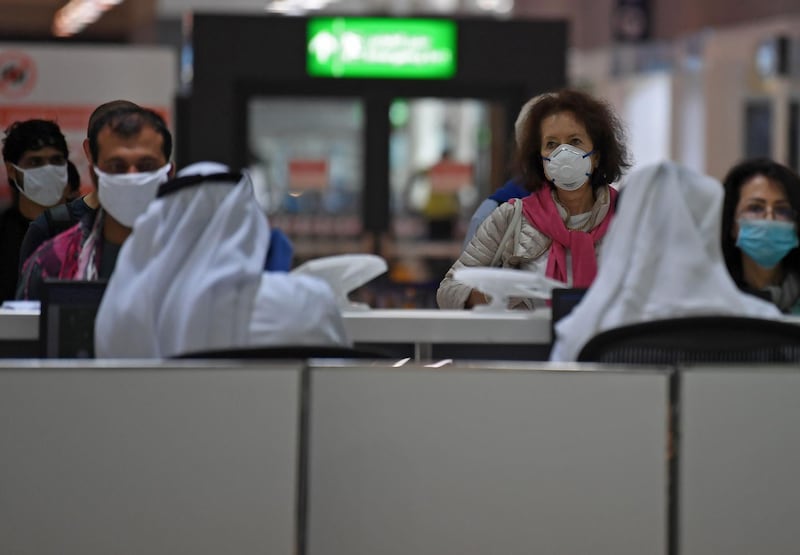Follow the latest updates on the Covid-19 pandemic
An air travel industry executive has predicted that passengers are likely to need to take PCR tests for years, and called on governments to pay for them.
Covid-19 testing also needs to get faster and countries should agree on a uniform system so passengers can move more easily across borders, said Kashif Khalid, the regional director of the International Air Transport Association for Africa and the Middle East.
"Given the reach of the pandemic, as well as the various different mutations and waves that we've seen, testing is going to be very much a part of the ecosystem for quite some time," said Mr Khalid in a radio interview.
Many countries now require travellers to be vaccinated and PCR-tested before they fly, something Iata fears could limit passengers from countries where few are vaccinated.
A testing mandate is preferable for the airlines, Mr Khalid said, with quarantining considered the worst option.
"If we just take Sub-Saharan Africa, the average vaccination penetration is still well below 5 per cent. So what we don't want is to be in a position where only those that are vaccinated can travel," Mr Khalid told Dubai Eye.
"We back all the WHO-endorsed methods of PCR, as well as rapid antigen testing, or even antibody testing - as long as it helps facilitate open borders.
"Among all of the challenges that we have in the aviation industry, quarantine is definitely one of the evils, as we call it, because it deters any demand from returning, and also is a major cost to travellers."
The question of who should pay for travellers' PCR tests falls under Article 40 of the World Health Organisation's International Health regulations, said Mr Khalid.
The clause - entitled 'Charges for health measures regarding travellers' - suggests no charge should be made by a government for certain measures "for the protection of public health", including medical or supplementary examinations.
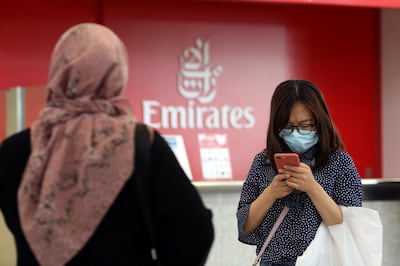
"What we've seen is that most of the governments, as well as the industry, have actually asked the passenger or the people that are conducting the test to pay, which is actually not in line with WHO recommendations," said Mr Khalid.
"Ultimately it's the governments' responsibility to pay for that test, and I have to give credit to the Dubai government because all the tests that are conducted for passengers arriving at Dubai International are paid for by the Dubai government.
"Where voluntarily passengers go to get tested, then obviously they would need to pay for it, but when it's a government-mandated requirement, then we do follow WHO guidance under Article 40 to say that governments should pay for it."
Vaccination passports
Iata has already introduced a Travel Pass app designed to validate the vaccination certificates and Covid-19 test results of each traveller and to share them with airlines and border control authorities.
It hopes this will speed up the process at the check-in desk, and create a globalised standard within the industry.
Dozens of airlines are trialling the app, including Emirates and Etihad Airways where it has been introduced on several routes.
Hundreds of Covid-19 testing labs around the world have also registered as eligible testing locations for travellers.
EU Digital Covid Certificates and the UK's NHS Covid Passes are accepted by the Travel Pass, and travellers flying to or from Saudi will be able to use it from September 30 to verify Covid-19 test results.
